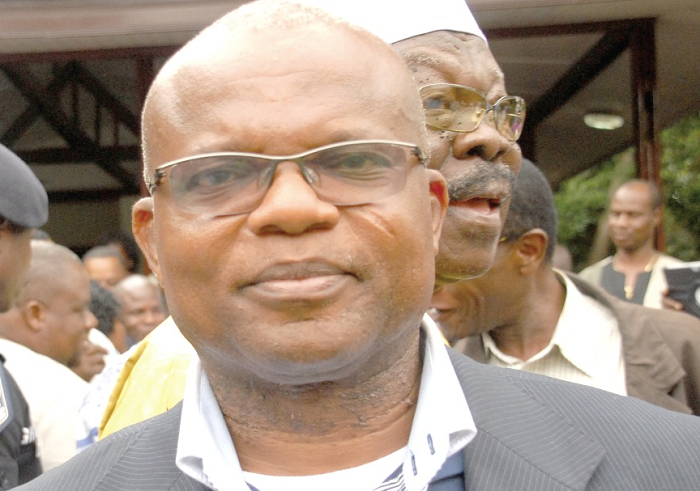
Dr Ato Arthur spells out plans for Local Government Service
The Head of the Office of the Local Government Service (LGS), Dr Nana Ato Arthur, has spelt out plans and strategies to make Ghana’s decentralisation process more vibrant and efficient to propel the development of the country.
Advertisement
He said strengthening the developing planning units of the Regional Coordinating Councils and the metropolitan, municipal and district assemblies (MMDAs) was crucial for the collection of reliable data to ensure effective planning and budgeting.
Dr Arthur made this known in an interview in Accra.
He said so much was expected from staff of MMDAs and said building the capacity of staff would be the priority under his leadership.
He added that the service would encourage the sharing of skills/knowledge by assemblies as they had varied capacities to help promote best practices in their various offices to ensure balanced development in the country’s 216 MMDAs.
He also stated there was the need to use Information and Communications Technology (ICT) to improve Internally Generated Funds (IGF) of MMDAs, adding that majority of the assemblies relied on the District Assemblies Common Fund (DACF) for development, which was inadequate.
Dr Arthur said the 2016 report on the performance of MMDAs revealed that the best 20 assemblies had an average of 33 per cent of their revenue coming from the IGF and the worst- performing assemblies contributed less than three per cent of the total revenue from the IGF in relation to the DACF and other government grants.
That, he said, informed the vision to use ICT to facilitate and develop a Digital Mapping System to assist in the identification of rating properties within a particular assembly and use professionally trained revenue collectors to collect more revenue to improve on the IGF.
He also identified sanitation as one of the core mandates of the MMDAs, saying the service would seek to build the capacity of assemblies to improve on sanitation in the various MMDAs.
Dr Arthur said the LGS would enhance the capacity of Environmental Health and Sanitation officers to ensure that they carried out their responsibilities for improved sanitation in the MMDAs.
He said the major challenge of the LGS was the inadequate financial resources to support the effective delivery of their mandate of securing effective administration and management in the country.
The LGS needed funds to offer motivational packages, as well as regular training for its staff for them to embark on knowledge upgrading, Dr Arthur added.
He said the refusal of staff to accept postings from one assembly to another was also a challenge, as well as staff lateness to work, especially in the rural areas where lateness to work seemed to be a normal routine.
{loadmodule mod_banners,Nativead1}
“In this regard, the Head of Service is insisting on the use of electronic biometric clocking system in every assembly where staff would clock in when they report and exit work,” he said.
He also noted with concern the challenge of some service staff with fake certificates, adding that: “The LGS under my watch will weed out officers with fake certificates.”
As a start, he said the LGS had ordered all professionals of the service to submit their certificates for verification and authentication by the requisite awarding institutions.
Contribution to decentralisation
Dr Arthur said the LGS contributed immensely to the decentralisation agenda of the country.
“The LGS is responsible for securing the effective administration and management of decentralised systems in the country,” he said.
The LGS head said there were three aspects of decentralisation, namely political, administrative and fiscal decentralisation, which must be well coordinated to ensure effectiveness.
He said the LGS had been positioned as the driver of local development and that was a reflection of the service’s motto: “Decentralisation, democracy and development.”
Attainment of Ghana’s decentralisation
Dr Arthur said decentralisation was a process and not an event and there was the need to work on a number of areas to ensure the smooth operationalisation of the process.
“Some of the areas that need to be looked at include the trial for local electoral system, public access to information and consultative meetings by the local actors,” he said.
He said those mechanisms were to ensure political accountability of government, adding that: “Political accountability of local government still remains an unfinished business in Ghana’s decentralisation system.”
Dr Ato Arthur fully supported the election of metropolitan, municipal and district chief executives (MMDCES) as proposed by President Nana Addo Dankwa Akufo-Addo.
He said there was the need for the publication of DACF releases to ensure that members of the public were privy to the information to be able to demand answers about the use of the money.




